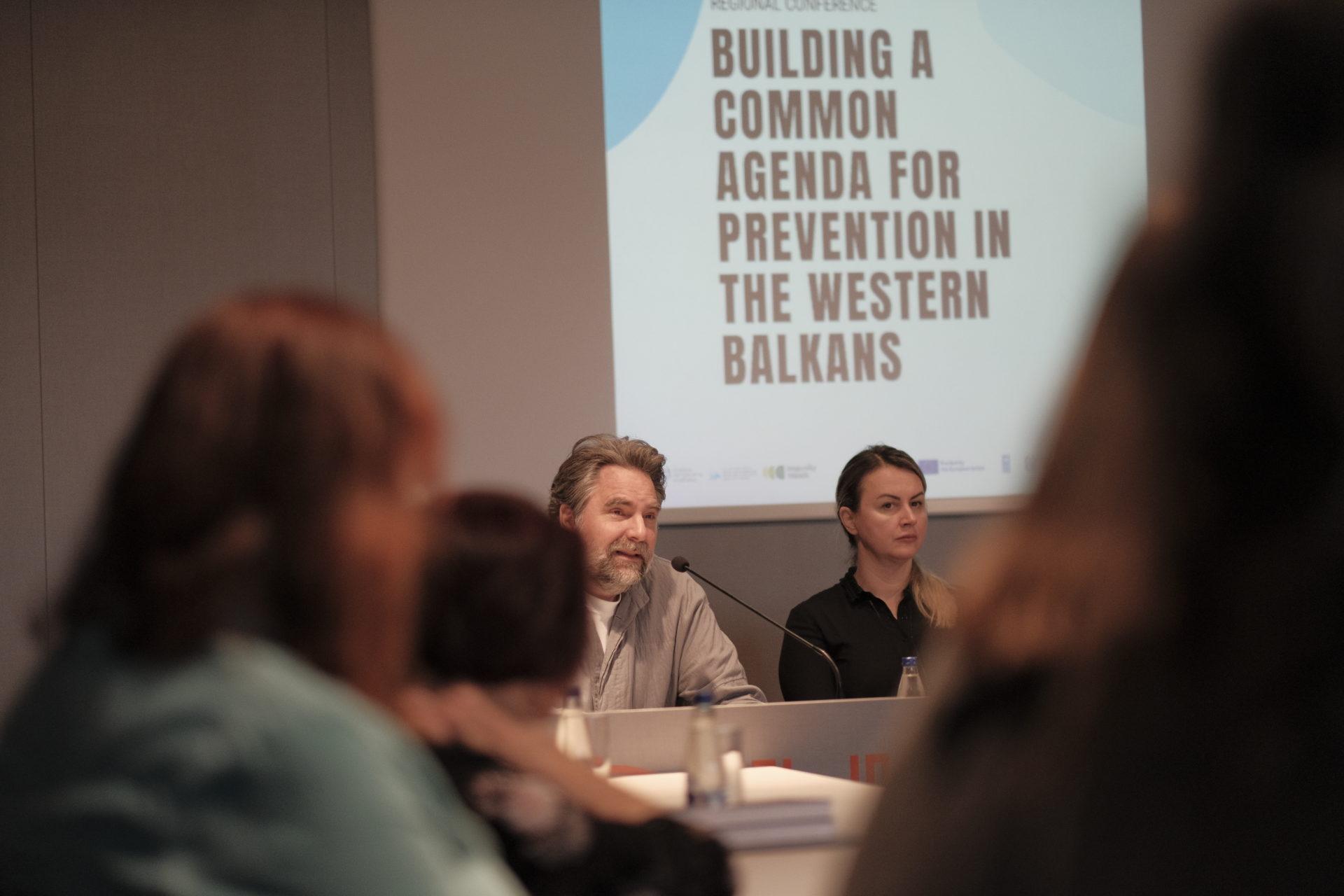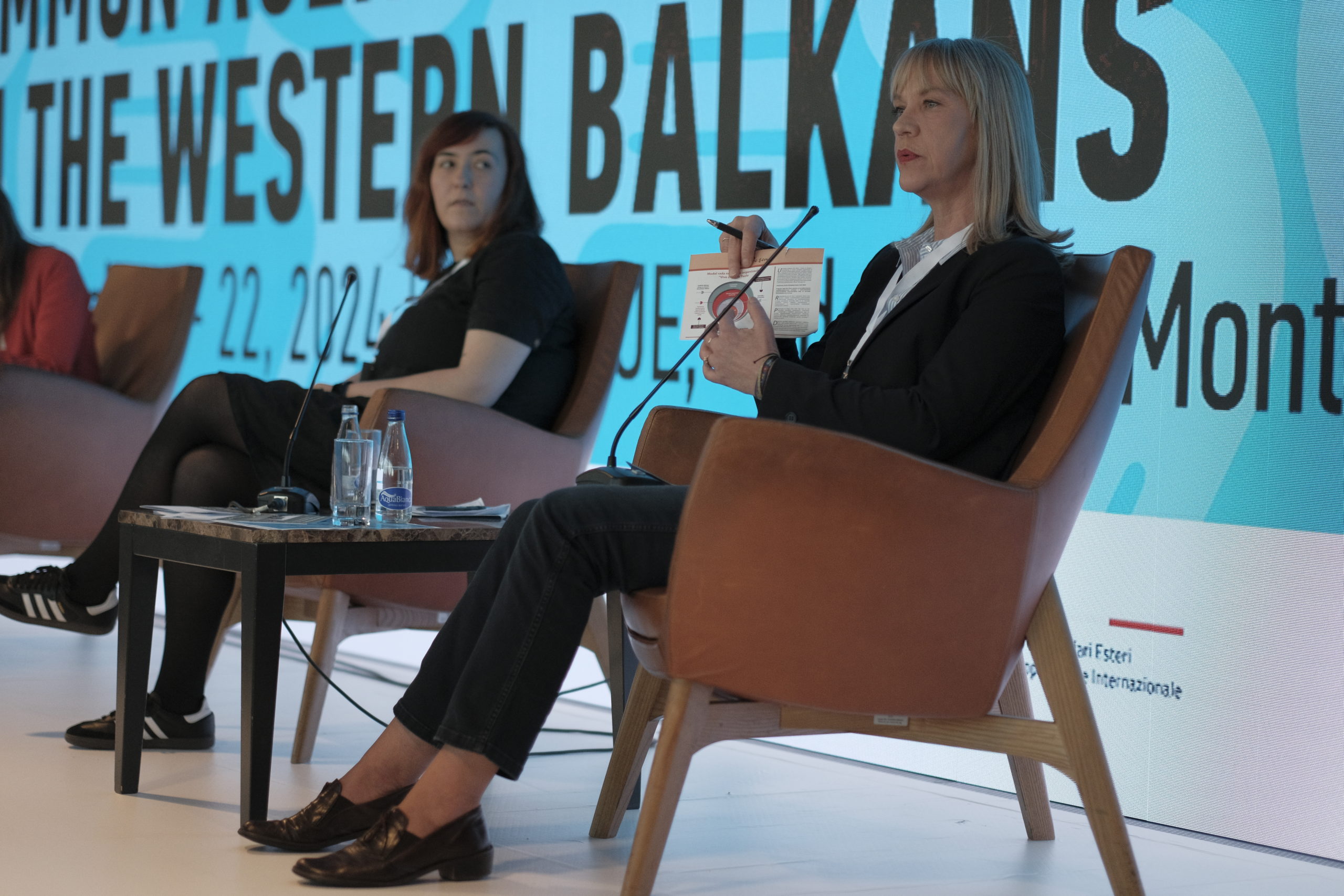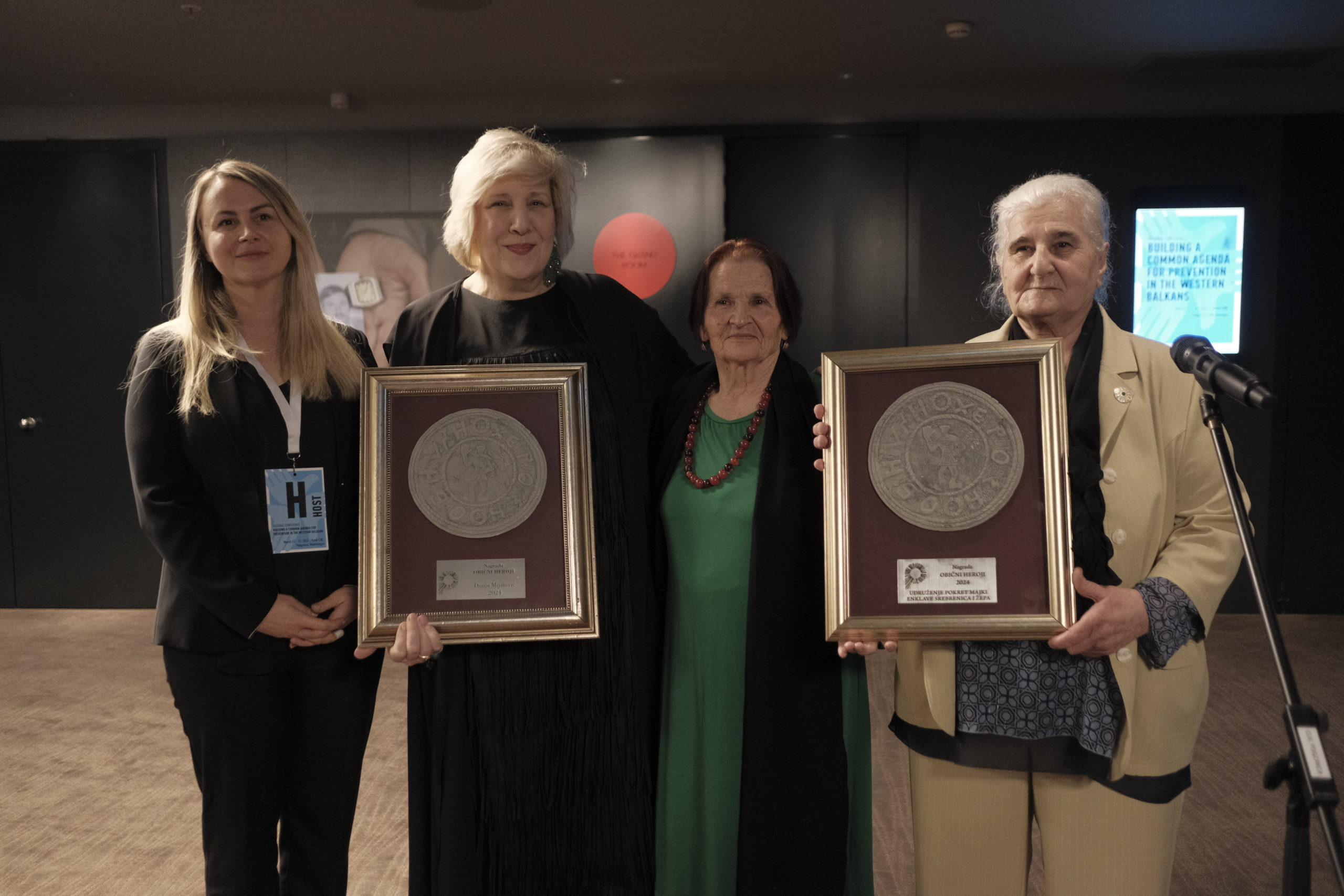
Healing from the past in the Western Balkans requires building a common narrative of the Yugoslav Wars in the 1990s. Key tools to help achieve this include education and the proper addressing of intergenerational trauma. 25 years after the final guns fell silent in Kosovo, this goal is yet to be fully realized.
The issue of intergenerational trauma and its role in processing the past was addressed in the panel discussion entitled “Healing (From) the Past: Psychosocial Support and Education”. The panel took place as part of the regional conference, “Building a Common Agenda for Prevention in the Western Balkans”, held on March 21st and 22nd in Podgorica, Montenegro.
The conference was organized by the Post-Conflict Research Center (PCRC) and the Western Balkans Coalition for Genocide and Mass Atrocity Crimes Prevention (CGMAP), in cooperation with Impunity Watch. Conference participants included representatives of civil society from the entire region, human rights defenders, activists, members of the CGMAP, as well as representatives of international organizations.
The panel was moderated by Kate Ferguson, from the UK-based charity, Protection Approaches.
Intergenerational Trauma and Distorted Narratives
Jasna Zečević, Director of the women’s rehabilitation center Viva Žene Tuzla, spoke on the subject. “If we don’t heal the trauma, we can’t be healed from the past. But can we truly heal the past? We cannot be healed from the past because the past is something that is part of us. So the question is how we accept it. And the problem is how we accept it.” Viva Žene Tuzla is an organization that has been working with women survivors of war crimes in Bosnia and Herzegovina since 1994.

According to Zečević, discussions about the past that remain within the confines of the family home, which is most often the case, keep people in a vicious circle. Therefore, she believes that in order to confront the past, broader social and political engagement is needed.
Margareta Blažević from the Youth Initiative for Human Rights (YIHR) Croatia highlighted a significant challenge in the processing of the 1990s wars among young people. Namely, intergenerational trauma often distorts fact. She explained that the work of the YIHR is focused on identifying and addressing two key challenges stemming from the lack of awareness among young people about the 1990s war. Those are: the role of the Republic of Croatia in the conflict in Bosnia and Herzegovina (1992-1995) and the war in Croatia itself (1991-1995).
“We notice that young people often get information from their families, which is a very nice example of transgenerational transmission of not only trauma but also narratives,” said Blažević. She added that “In our efforts to educate the youth on what actually happened, we employ various methodological approaches, involving the youth in transitional justice processes and encouraging young people to self organize.”

The importance of a responsible confrontation with the past was also emphasized by Velma Šarić, President and Founder of the PCRC. She explained that this is not possible without integrating peace education into official curricula.
Over the last eight years, the PCRC has been collaborating with teachers and educators from the region and beyond on an educational manual, “Holocaust and Peace – Lessons From the Past for the Future”. The manual includes peace education curricula, as highlighted by PCRC president, Šarić.
“Last year, we managed to integrate the “Holocaust and Peace – Lessons From the Past for the Future” manual into the curriculum in schools in the Sarajevo Canton area. For the first time in history, 100,000 young people will learn about peace through various modules covered in the manual,” added Šarić.
It’s important to provide young people with a wide range of perspectives, stated Šarić, in order to enable them to independently assess events from the past and develop their own critical stance. “An open and inclusive approach to education about the past can empower young people to become active citizens who promote understanding and peace. Their role in society is not only to inherit from us but also to shape the future they want to see,” Šarić stated.
The integration of the PCRC’s education manual represents a significant milestone in the path towards a better understanding of peace and conflict prevention.
Art as a Healer of Trauma
Jasmina Lazović from the cultural foundation Heartefact Serbia spoke about the importance of cultural initiatives in raising awareness and supporting young people in processing trauma. According to her, artistic works can not only initiate discussions about the past but also encourage people to put themselves in the shoes of the ‘other’.

Meanwhile, Prevention Approaches representative and panel moderator, Kate Ferguson, highlighted the impact Western Balkan civil society organizations have had on peacebuilding. “One of the extraordinary contributions that I think the Western Balkans civil society ethos and experience has given the world is this understanding of the importance of trauma and of human-centered, victim-centered responses,” said Ferguson. This regional movement has been mostly led by women, in response to the unimaginable violence that unfolded in the Western Balkans 30 years ago.
The panel underscored the critical need for a unified approach to addressing intergenerational trauma and distorted narratives stemming from the Yugoslav Wars. Through education, psychosocial support, and cultural initiatives, efforts are being made to confront the past responsibly and foster a shared understanding of history in the Western Balkans. The integration of peace education into official curricula marks a significant step forward, empowering young people to critically engage with their past and shape a future founded on understanding and peace. As civil society organizations continue to lead the way in healing and reconciliation, the region stands poised to forge a path towards collective healing and the prevention of future atrocities.
____________________________________





